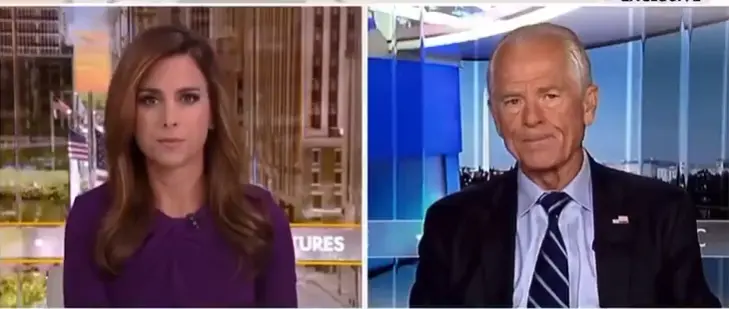
Outrageous Accusation: Navarro Blames Brahmins for Russian Oil Trade
A Controversial Interview Sparks Global Backlash
Navarro Casteist Attack on India Sparks Global Outrage – On September 1, 2025, White House trade advisor Peter Navarro made headlines – and sparked outrage – with a fiery interview on Fox News. While defending President Donald Trump’s proposed 25% tariffs on Indian goods, Navarro accused India of helping Russia dodge sanctions through its discounted oil trade. But what shocked many was his casteist remark, blaming elite “Brahmins” for profiteering while ordinary Indians suffer.
Navarro claimed India had become a “laundromat for the Kremlin,” buying cheap Russian oil, refining it, and exporting it at a profit. He argued that this trade not only undermines Western sanctions but also fuels Russia’s war machine. However, his decision to frame the issue through caste targeting Brahmins specifically – was widely condemned as ignorant, divisive and inflammatory.
Indian officials, analysts, and social media users responded swiftly, calling the remarks reckless and offensive, especially given India’s complex social fabric and democratic values.
The Oil Trade and Tariff Tensions
India’s purchase of discounted Russian oil has been a point of contention since the Ukraine war began. While many Western nations cut ties with Russian energy, India maintained its imports, citing national interest and energy security. Indian refiners have been buying crude at lower prices, processing it, and exporting fuel globally — a move that some in the West view as sanctions evasion.
Navarro used this trade dynamic to justify Trump’s 25% tariff proposal, which he claimed was necessary to protect American workers and punish India’s “strategic freeloading.” He argued that India’s high tariffs on U.S. goods, combined with its Russian oil trade, warranted a strong response.
However, critics say the tariffs could hurt both economies, especially amid growing cooperation in defense, technology, and climate. Navarro’s remarks risk turning a trade dispute into a diplomatic crisis, especially with his caste-based accusations.
India Responds: Unity Against Divisive Rhetoric
Indian leaders and commentators were quick to push back. Government officials called Navarro’s comments “deeply disrespectful” and “out of touch with India’s democratic values.” Social media erupted with hashtags like #CasteNotPolicy and #NavarroOut, as users condemned the racial and casteist undertones of his statements.
Experts pointed out that India’s foreign policy decisions are made by elected leaders and institutions — not by caste groups. Many viewed Navarro’s remarks as an attempt to oversimplify a complex issue and distract from broader geopolitical realities.
Even American analysts criticized the comments. National security expert Derek J. Grossman tweeted, “Fomenting caste unrest in India should never be U.S. foreign policy.” Others warned that such rhetoric could damage U.S.- India relations, especially at a time when both nations are working together on defense, trade, and regional stability.
What This Means for Global Diplomacy
Navarro’s remarks come at a sensitive time. Prime Minister Narendra Modi recently attended the SCO Summit in China, meeting with Russian President Vladimir Putin and Chinese President Xi Jinping. India’s balancing act between East and West is under global scrutiny, and inflammatory comments from U.S. officials could undermine trust and cooperation.
The U.S. and India are strategic partners in many areas – from counterterrorism to semiconductor manufacturing. But if trade disputes are framed through caste and cultural stereotypes, it risks alienating Indian policymakers and citizens alike.
As global power dynamics shift, diplomacy must be built on respect, understanding, and nuance. Navarro’s comments may have been intended to justify tariffs, but they’ve instead ignited a firestorm that could reshape how India views its relationship with the U.S.
Final Thought
Peter Navarro’s casteist attack on India’s oil trade has turned a policy debate into a cultural controversy. While trade tensions are real, framing them through divisive rhetoric only deepens mistrust. For U.S.-India relations to thrive, leaders must rise above stereotypes and focus on shared goals, not inflammatory soundbites.
Also read – Bold Ultimatum: India Draws a Red Line in Trade Talks with Trump
“Modi’s War?”- Truth vs Blame: US Analyst Navarro Exposes Flawed Accusation Against Modi
Stay informed with the latest news and updates – only on Rapido Updates.